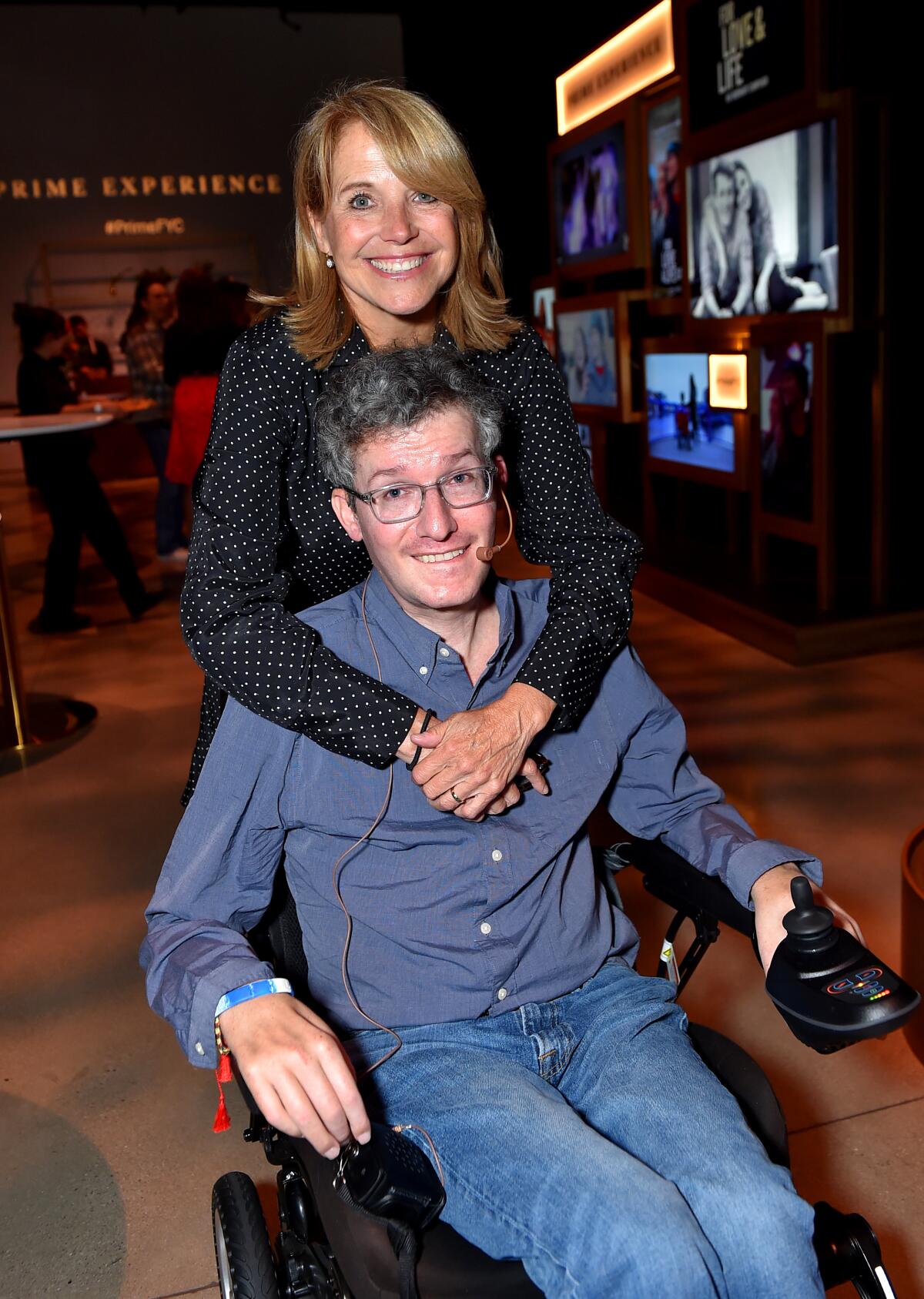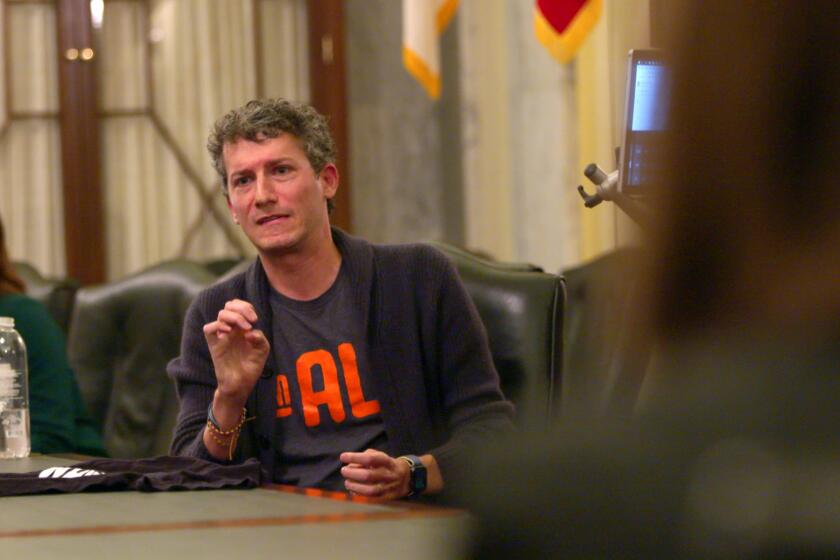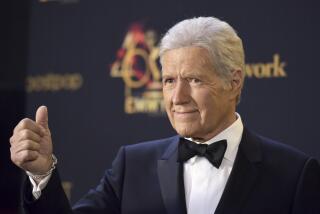Katie Couric steps in to produce ALS campaign film

As a longtime champion of awareness for both colon cancer and Parkinson’s disease, veteran TV journalist Katie Couric is no stranger to health advocacy. So she was naturally intrigued when she learned, through a 2022 Politico piece by Sam Stein, about ALS patient — and onetime Obama administration lawyer — Brian Wallach and his wife, Sandra Abrevaya, who had become activists for the fatal disease.
Touched and inspired, Couric was eager to help Wallach and Abrevaya, especially when she learned that a documentary about them was being shot. Stein connected her with the couple and, as Couric told The Envelope in a recent video call, “We got together on a Zoom and that’s where the love story began.”
A warm and relaxed Couric enthused about Wallach and Abrevaya and her role as an executive producer on their documentary, “For Love & Life: No Ordinary Campaign,” directed by Christopher Burke, as she spoke from her Manhattan apartment.
“I was learning along the way,” says documentary filmmaker Christopher Burke. “Brian and Sandra’s love story forms the spine of [the film], but then we had to make people understand the basics of this disease.”
The filmmakers must have been thrilled that you wanted to jump on board. How did you help?
A little financially and also making some [narrative] suggestions, because I think through my cancer advocacy work I’ve become pretty adept at synthesizing complicated medical concepts and making them understandable to the average person.
So you were involved in the film’s editing process?
I wasn’t in the edit room, but I would give notes about things that I thought worked, on sound bites and when they were placed, just small things like that. Some [suggestions] were taken and some weren’t. [Laughs]
Has your participation in the film changed you, or maybe your approach to advocacy, in any way?
I’ve had the privilege of meeting and getting to know a lot of people who persevere through very tough situations, and I think Brian and Sandra have restored my faith in the ability of a small group of people to change the world — if you are determined and you persevere and you understand how to tackle a problem.
Well, you’ve certainly known how to tackle problems within your own health awareness efforts.
You have to use whatever power, influence or platform you have, and I think that I, for one, had a platform on national television that could provide a bully pulpit to educate people about colon cancer, for example. Brian and Sandra had an understanding of the political system and how you navigate the behemoth that is the federal government and actually get things done, step by step. And that was their secret sauce when it came to changing the face of the disease.
Given your first husband’s death from colon cancer and your activism on behalf of the disease, Brian and Sandra’s commitment to their cause — and each other — must have really hit home.
When someone you love is sick, there is nothing like the fear and desperation that propels you to do everything humanly possible to change the situation. And I think that’s what Brian and Sandra have done. Watching them interact, watching Sandra express what Brian can no longer say, is incredibly poignant and moving. I think they really embody what we hope to have in a partner.
More to Read
From the Oscars to the Emmys.
Get the Envelope newsletter for exclusive awards season coverage, behind-the-scenes stories from the Envelope podcast and columnist Glenn Whipp’s must-read analysis.
You may occasionally receive promotional content from the Los Angeles Times.











